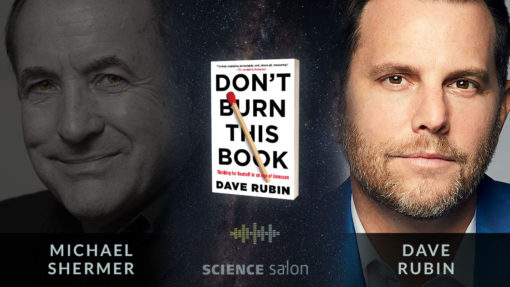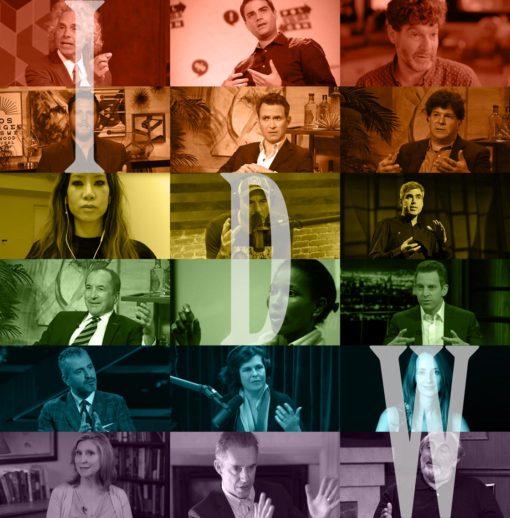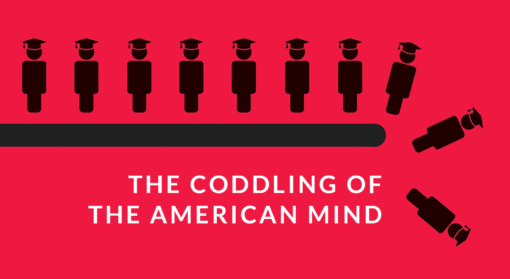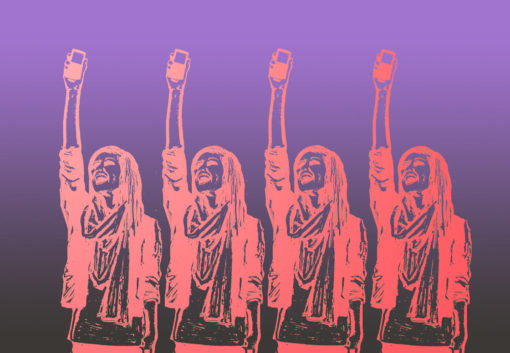In this special episode of the Science Salon Podcast, Michael Shermer catches up with Douglas Murray one year after the publication of his bestselling book The Madness of Crowds, now out in paperback, with an Afterword update on all that has happened the past year, one of the most momentous in living memory.
Tags
-
browse by topic
racism
eSkeptic for October 16, 2020
eSkeptic for September 25, 2020

Agenda-driven diversity and antiracism training programs are everywhere, but do they work in creating an inclusive culture? In our current climate of high racial tensions and deadlocked civil discourse, Dr. Mona Sue Weissmark asks “Is there a more effective way to break down these conversation barriers in order to answer some of the most difficult, polarizing questions that we face today?” PLUS, given the rising level of social and economic unrest seen in 2020, we announce a new study coming…
Do Diversity Training Programs Work? Creating a Culture of Inclusion through Scientific Reasoning

Agenda-driven diversity and antiracism training programs are everywhere, but do they work in creating an inclusive culture? In our current climate of high racial tensions and deadlocked civil discourse, Dr. Mona Sue Weissmark asks “Is there a more effective way to break down these conversation barriers in order to answer some of the most difficult, polarizing questions that we face today?”
Dave Rubin — Don’t Burn This Book: Thinking for Yourself in an Age of Unreason

The left is no longer liberal. Once on the side of free speech and tolerance, progressives now ban speakers from college campuses, “cancel” people who aren’t up to date on the latest genders, and force religious people to violate their conscience. They have abandoned the battle of ideas and have begun fighting a battle of feelings. This uncomfortable truth has turned moderates and true liberals into the politically homeless class…
eSkeptic for April 28, 2020
In Science Salon # 113 Michael Shermer speaks with Dave Rubin, the host of the political talk show The Rubin Report — the most-watched talk show about free speech and big ideas on YouTube — about his first book Don’t Burn This Book: Thinking for Yourself in an Age of Unreason.
Shedding Light on the Intellectual Dark Web: A Preliminary Empirical Study

Ever since Bari Weiss introduced the world to the “Intellectual Dark Web” much has been written on what the members of the IDW believe. Pundits, journalists, and scholars have confidently espoused their “hot take” of the IDW without the slightest bit of systematic data collection to back up their claims. This empirical study of members of the IDW offers a preliminary summary of their beliefs on a wide range of issues.
eSkeptic for October 20, 2019
Ever since Bari Weiss introduced the world to the “Intellectual Dark Web” much has been written on what the members of the IDW believe. Pundits, journalists, and scholars have confidently espoused their “hot take” of the IDW without the slightest bit of systematic data collection to back up their claims. This empirical study of members of the IDW offers a preliminary summary of their beliefs on a wide range of issues.
eSkeptic for August 6, 2019
In response to last week’s trifecta shootings in Gilroy, El Paso, and Dayton, Michael Shermer offers an analysis of the psychology of mass public shooters, or why people act on their beliefs, why almost everyone thinks their beliefs are ontologically true and morally right, and why political rhetoric matters.
Guns Don’t Kill People, Beliefs Kill People

In response to last week’s trifecta shootings in Gilroy, El Paso, and Dayton, Michael Shermer offers an analysis of the psychology of mass public shooters, or why people act on their beliefs, why almost everyone thinks their beliefs are ontologically true and morally right, and why political rhetoric matters.
eSkeptic for October 17, 2018
Science Salon Podcast # 42: The Meaning of Life, the Universe, and Everything. A dialogue between Michael Shermer and psychologist Clay Routledge (Supernatural: Death, Meaning, and the Power of the Invisible World) on life’s deepest and most meaningful issues.
Great Untruths

Anondah Saide and Kevin McCaffree review The Coddling of the American Mind: How Good Intentions and Bad Ideas are Setting Up a Generation for Failure by Greg Lukianoff and Jonathan Haidt.
I Am Not a Racist, And So Are You: An Unauthorized Peek at the Great Shaming Taking Place at an Institution of Higher Learning Near You (and Other Fireside Tales)

Stephen Beckner ponders privilege and parity in a postmodern world, weighing in on the many Grand American Shaming Experiments taking place right now, and their potentially enormous personal, political, and cultural opportunity costs.
eSkeptic for June 13, 2018

Stephen Beckner ponders privilege and parity in a postmodern world, weighing in on the many Grand American Shaming Experiments taking place right now, and their potentially enormous personal, political, and cultural opportunity costs.
eSkeptic for June 8, 2018
In his June 2018 ‘Skeptic’ column for Scientific American, Michael Shermer discusses Google data scientist Seth Stephens-Davidowitz’s idea that Google searches may act as a “digital truth serum” for our deeper and darker thoughts.
eSkeptic for February 14, 2018

In this week’s eSkeptic, Kevin McCaffree reviews the forthcoming book The Rise of Victimhood Culture: Microaggressions, Safe Spaces, and the New Culture Wars (March 21, 2018) in which sociologists Bradley Campbell and Jason Manning have produced the first systematic theoretical analysis of the moral culture of “victimhood” emerging on university campuses
Honor, Dignity, Victim: A Tale of Three Moral Cultures

Kevin McCaffree reviews the forthcoming book The Rise of Victimhood Culture: Microaggressions, Safe Spaces, and the New Culture Wars (March 21, 2018) in which sociologists Bradley Campbell and Jason Manning have produced the first systematic theoretical analysis of the moral culture of “victimhood” emerging on university campuses.
Are You An Unconscious Racist?

Carol Tavris examines whether the Implicit Association Test (IAT) can really capture unconscious prejudices and predict if people will actually behave in a biased or discriminatory way.
eSkeptic for November 1, 2017

In this week’s eSkeptic, Carol Tavris examines whether the Implicit Association Test (IAT) can really capture unconscious prejudices and predict if people will actually behave in a biased or discriminatory way.
The Multi-headed Hydra of Prejudice
![Hercules Killing the Lernean Hydra, Cornelis Cort [Public domain], via Wikimedia Commons](https://www.skeptic.com/wordpress/wp-content/uploads/Hercules_Killing_the_Lernean_Hydra-2x-510x379.jpg)
Social psychologist (and regular columnist for Skeptic magazine, Carol Tavris, discusses the hydra of prejudice and the psychological predictors that lead to it rearing its ugly heads.
eSkeptic for August 30, 2017
![Hercules Killing the Lernean Hydra, Cornelis Cort [Public domain], via Wikimedia Commons](https://www.skeptic.com/wordpress/wp-content/uploads/Hercules_Killing_the_Lernean_Hydra-2x-510x379.jpg)
In this week’s eSkeptic, social psychologist (and regular columnist for Skeptic magazine, Carol Tavris, discusses the hydra of prejudice and the psychological predictors that lead to it rearing its ugly heads.
SKEPTIC App
Whether at home or on the go, the SKEPTIC App is the easiest way to read your favorite articles. Within the app, users can purchase the current issue and back issues. Download the app today and get a 30-day free trial subscription.










